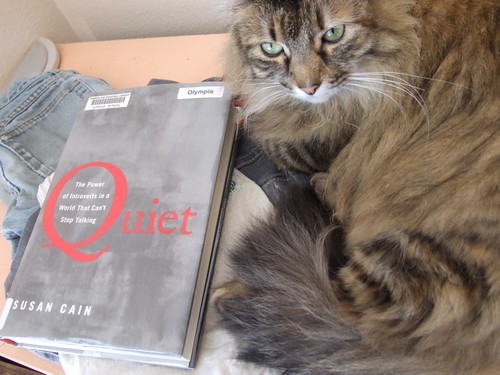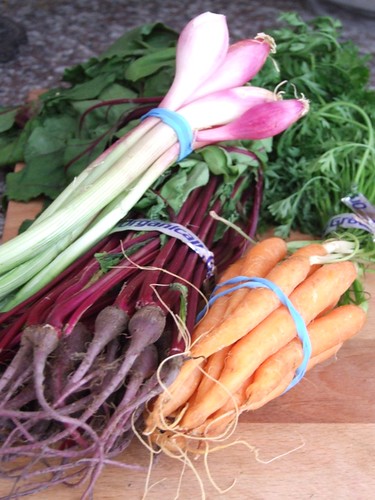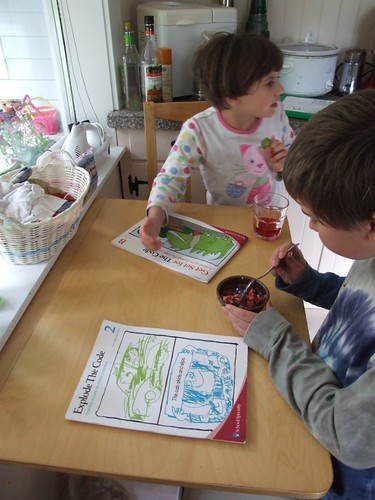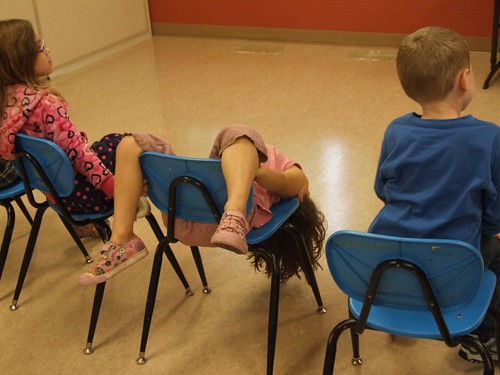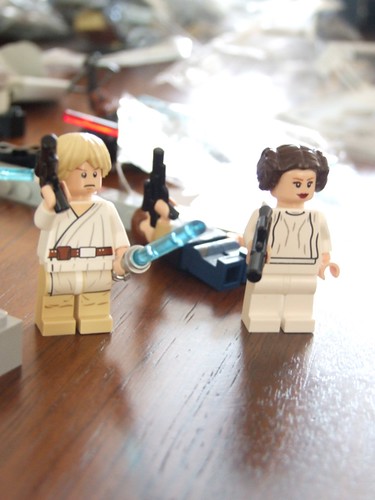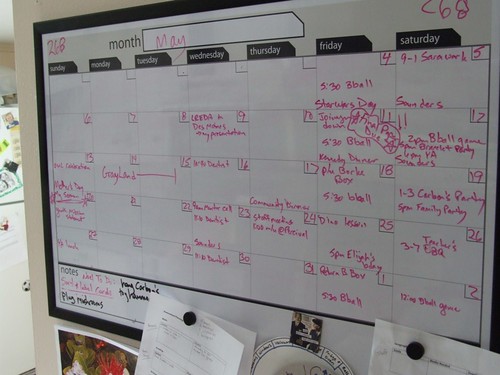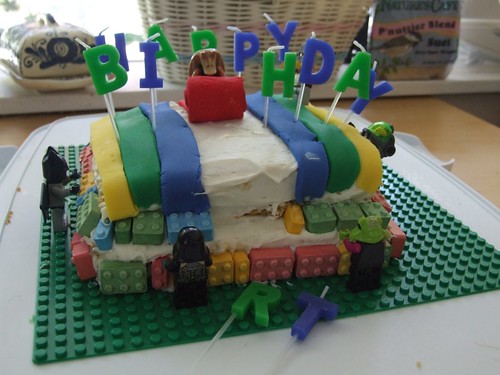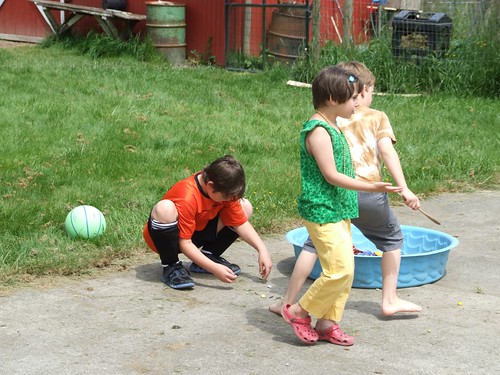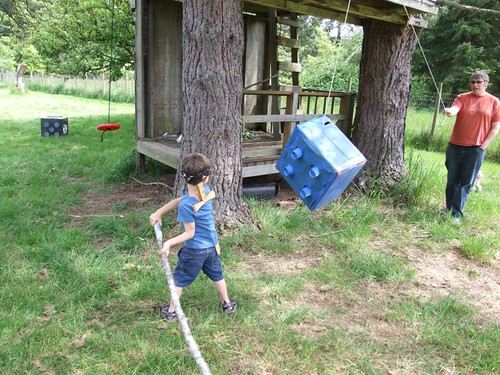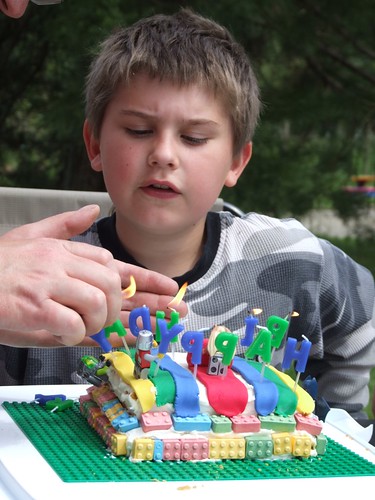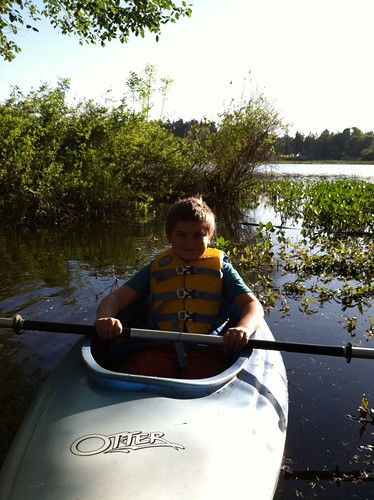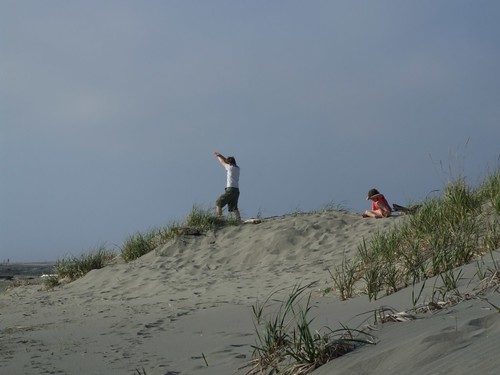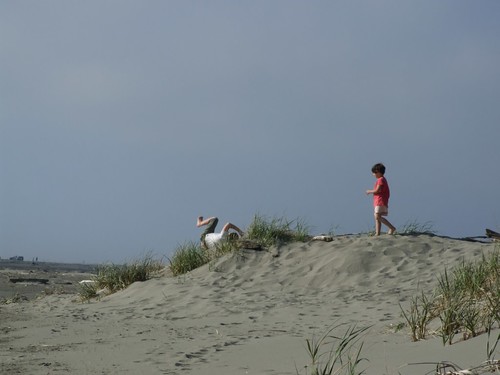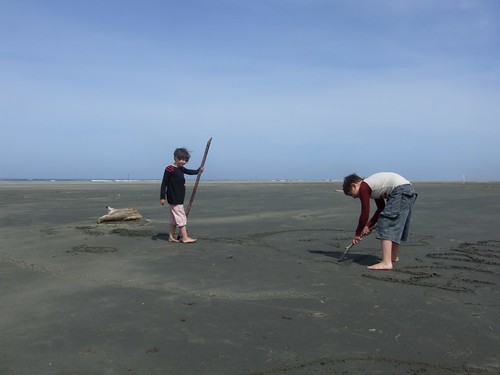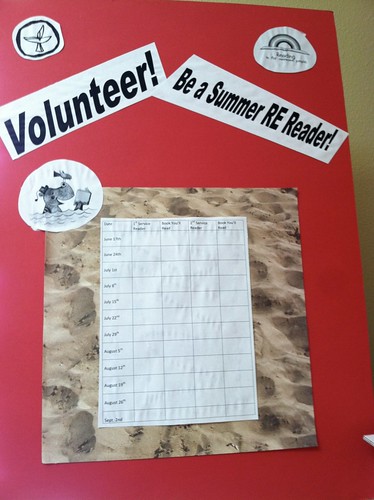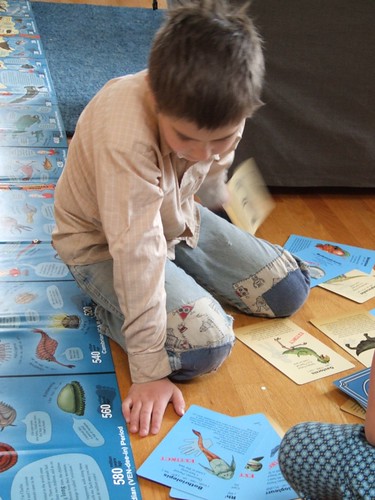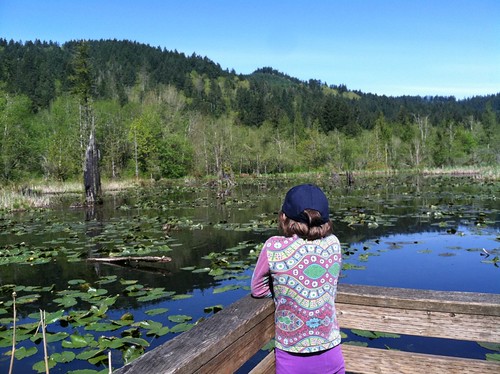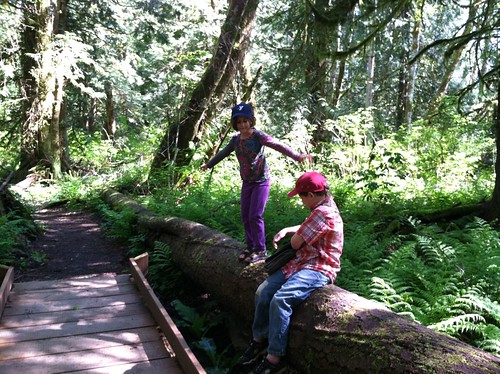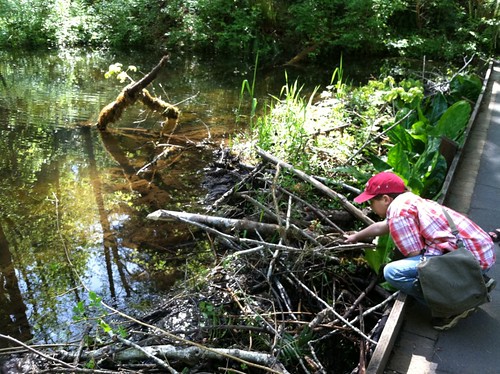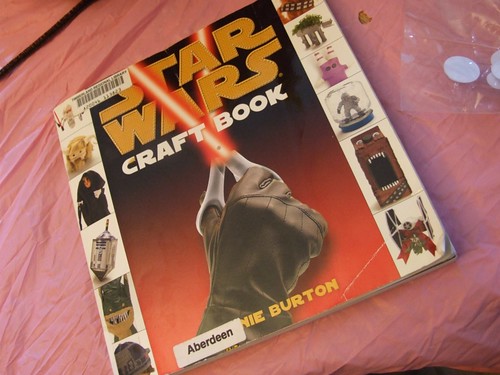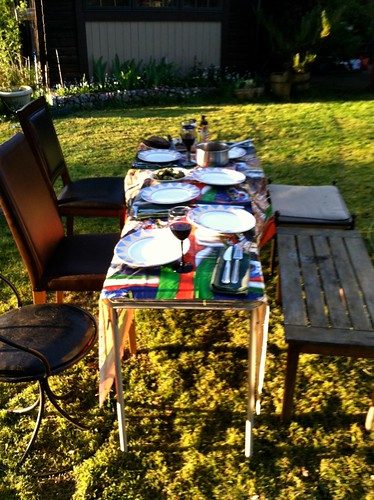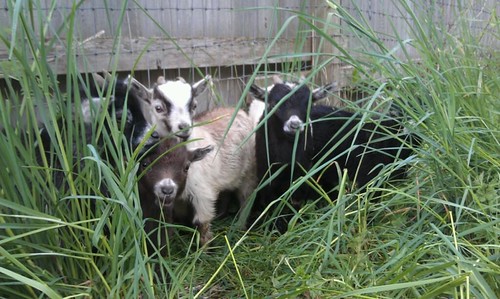Last Sunday, I delivered my first-ever sermon. I learned a lot from the experience, and it went well. Folks were very kind and complimentary, and my assessment from my minister was good, with just enough critique to be helpful but enough praise to make me want to do it again someday. :) I should have defined pedagogy for folks though, so here is what I should have put in there:
Pedagogy (
 /ˈpɛdəɡɒdʒi/
/ˈpɛdəɡɒdʒi/ or
/ˈpɛdəɡoʊdʒi/)
[1][2] is the holistic science of education. It may be implemented in practice as a personal, and holistic approach of socialising and upbringing children and young people.
[3][4] The term is not to be confused with
social pedagogy, where society (represented by social pedagogues) holds a bigger part of the responsibility of the citizen's (often with mental or physical disabilities) well-being.
[5][6]
Pedagogy is also occasionally referred to as the correct use of instructive strategies (see
instructional theory). For example,
Paulo Freire referred to his method of teaching adult humans as "
critical pedagogy". In correlation with those instructive strategies the instructor's own philosophical beliefs of instruction are harbored and governed by the pupil's background knowledge and experience, situation, and environment, as well as
learning goals set by the student and teacher. One example would be the
Socratic schools of thought.
[7]
Teaching as a Theologically
Rooted Act
A Sermon by Sara Lewis
As
a religious educator in the Unitarian Universalist tradition, I am asked fairly
frequently “what do you teach them?”.
After four years of this work, I have begun to have a good simple answer
to that question, but in reality it’s not a silly question. We include in our curriculum a dizzying
array of topics and ideas and have no core doctrine to, well, indoctrinate our
young with. So the What? Is not
simple. But I believe that the
What is less important than the How, and that for us, the How of religious
education is what reveals our true core theology.
Sophia Lyon Fahs
was born in 1876, in Hangchow, China where both her parents were Lutheran
missionaries. She married a
man she met through the missionary movement, and he became a Methodist
minister. The young couple
initially intended to become missionaries themselves, but a bout of illness
kept them from beginning that work.
Mr. Fahs instead went to work for the Missionary Board and spent the
rest of his professional life promoting Christian Mission work around the
world.
From
this early religious background, Sophia Lyon Fahs would go on to become one of
the most important religious educators of the 20th century,
influence Unitarian Universalist religious education to this day, and
eventually accept honorary ordination as a Unitarian minister while in her
80’s. She advocated many controversial
ideas, such as that religious instruction should be based around the actual
experiences of children rather than in the text of the Bible, and even that
young children were not developmentally ready to have a mature concept of God
and therefore the subject should be avoided.
How
did she go from planning a life as a Christian missionary to creating religious
education curricula for children that didn’t even mention Christ at all? In the biography of Fahs written by
Edith Hunter, who knew her during her life, Hunter writes that despite Fahs’
interest in Biblical scholarship and exposure to new methods of Biblical
criticism that were shifting theology for some at the time, it was actually in
the area of teaching and pedagogy that Fahs had her conversion experience.
The late nineteenth century was a time of large
shifts in education. While the
industrial model of graded classrooms was a product of new goals for education
in an industrial society, the influences of the theory of evolution and the new
field of psychology also came to be felt in education. Progressive educators imagined the
essential nature of children and the process of learning differently than
previous educators had done. That
children are essentially different from adults and go through stages of
development was established, and that learning is a process that occurs within
the learner was also emphasized. These changes were felt in secular education, but also
in religious education. As the Christian Education professor
Harold Burgess writes: “the resulting model prescribed monumental changes in
how religious education might best be pursued. Perhaps the single most important change was that an almost
complete reliance upon revealed truth was superceded by a characteristic commitment
to discover, and to test, truth through rigorous application of the scientific
method”. It was a time of shifting
understandings about the nature of mankind, of childhood, the process of
learning, and even the ultimate goal of a human life. This was the atmosphere that Fahs encountered when she
attended Teachers College.
Professors
such as Edward Lee Thorndike, an early behavioralist, opened her eyes to new
scientific ideas of learning. The
progressive educator, John Dewey, an advocate of hands on experiential learning
for children, was on staff at Teachers College. But it was another professor, Dr. Frank McMurry, who would
push her toward storytelling, a pedagogy that she would become well-known
for.
McMurry was
interested in both secular and religious education, and he was part of an
effort by Teachers College to run an experimental Sunday School program. Fahs taught a class in that school,
which she described as “a year’s revolutionizing experience for me. I had an opportunity to acquire an
entirely new outlook on what religious education might mean”.
I can relate to the sentiment, and I imagine
that the atmosphere in that experimental school must have been energizing. Theory can be fascinating and useful,
but nothing I ever read in a book about teaching could match the experience of
actually engaging with children with an open mind or an experimental and fresh
method or idea. As Mrs. Fahs
illustrated so wonderfully in the Reading we shared today, children can
experience the extraordinary in simple things that we adults may overlook. I love the simple wonder and awe or
profound sense of connection that I’ve seen children express during religious
education classes.
It would be through her years of wrestling with
two questions, namely how children
should be taught about religion and what they
should be taught, that Fahs’ educational philosophy led to personal theological
change. Her early struggle is
illustrated in her first published article, titled “Missionary Biography in the
Sunday School”, in which she wrote “although the Bible must ever remain the
textbook norm for Sunday School instruction, it is quite generally recognized
that, in the form in which we have it, it is not a children’s book”. Over time, the struggle with
that inconsistency would lead to the idea that the Bible did not need to be the
textbook norm for the Sunday School, and an increasingly naturalistic religious
theology.
Fahs
became a mother in 1905, and later described her child-raising years as a
“period of internship education in the most dynamic educational institution in
our culture – namely, the home”. As a mother, Fahs read the works of Dr. Montesorri and John
Dewey, and found herself greatly dissatisfied with the quality of education,
both secular but particularly religious, that her children received in the
various schools and churches they tried.
She felt that the religious education she provided the children at home
was superior to what she could find in any church in the area, and she reported
in many letters to her husband conversations she had with the children about
God and theology. She came to
believe that “every child in every culture is confronted by the same basic
forces, both outside of himself and within himself”.
During those mothering years, Fahs learned from
her children and from experiences with illness and death (two of her children
died, one in infancy and another as an adolescent) and also found time to
study, write, and teach both children and adults. But she struggled with feeling that there was not enough
time to pursue her passion for religious education with all the homely domestic
duties, and in 1923 she was happy to write to her mother that she had
registered at Union Theological Seminary, to work toward the Bachelor of
Divinity degree.
As a religious educator in this tradition, I
have found it very inspirational that Fahs’ methods and theories were founded
on observation of real children over a long period of time. In order to teach with intention, a
teacher needs to have a notion of the nature of the one who will be learning,
of how they will learn, and what the ultimate goal of the learning is. Prior to the sweeping changes that
progressive education brought with it, Christian education had been
scripturally based. This meant
that our understanding of the nature of children was informed by the doctrine
of original sin, that our understanding of how learning happened was that
transmission of the revealed truths in the Bible could be accomplished by
memorizing them, and that the ultimate goal was that the learner would be a
good Christian and be granted salvation after death.
What Fahs, and other progressive educators, did
was to look to the children themselves, rather than the old authorities, for
the answers to those questions of Who is learning, How do they learn, and Why
do they learn? Fahs answered those
questions with the new ideas of evolution and psychology, and she saw in
children a natural impulse toward religion. This was different than a natural impulse toward wanting to
memorize the Bible. A natural
impulse toward religion is the impulse to look at the natural world around us
with awe and wonder, to see connections between different beings and ideas, to
ask questions and to frame life with meaning. It is the way human beings make meaning and understand their
lives. It is present when children
ask questions such as “where did I come from”, “why am I me?”, or “why do
people die?”.
Ideas
like these prompted Reinhold Niebuhr in 1928 to write that “I have a dark
suspicion that some of these modern religious educators do not really know what
religion is about”.
But there were others who read her words with interest, and one was The
Rev. Albert C Dieffenbach, the editor of the Christian Register, the official denominational paper of the
Unitarians.
The Unitarians,
although they had the open-minded theology that Fahs was looking for, did not
have a great history of progressive methods in their religious education
programs. Almost a hundred years
before, William Ellery Channing had called for such a progressive approach when
he wrote the oft quoted aim of religious education as being “not to stamp our
minds irresistibly on the young, but to stir up their own …”,
but his inspiring words had largely been ignored and the Unitarians continued
to rely on catechism memorization in their Sunday Schools. They did introduce graded materials
around the turn of the century, and in 1909 The Beacon Series was introduced
under the leadership of Dr. Edward A. Horton, who urged the churches to adopt
the best of the new methods of the secular educators. By 1935, the Commission of Appraisal
was at work, and a new curriculum study committee was formed.
And so it was that Sophia Lyon Fahs began work
as Editor of Children’s Materials in 1937, at the age of 61, and took on the
task of revising The Beacon Series.
She brought a remarkable passion and viewpoint to her work there. As David B. Parke writes in The Children Were My Teachers, “Sixty
years old and a mature educator at the time of her appointment, she was a
teacher in search of an audience at the very moment when American Unitarianism
was an audience in search of a teacher.
The contact which they made with each other was to have momentous
consequences for the denomination and for Mrs. Fahs herself”
Meanwhile,
there was increasing reaction to these new methods of religious education. More and more, mainline Christians were
calling for a rejection of the new educational methods and theories, and
Neo-orthodoxy was pushing liberal theology aside. A conflict between method,
and its related assumptions about the nature of man and our history on this
world, and the message of a received
revelation, had reached loggerheads.
One defender of the liberal methods, Professor Harrison Elliot, wrote a
book titled Can Religious Education be
Christian?, in which he defended the experiential learning theories, “learning in and through experience is
not a pedagogical slogan, invented by progressive educators. It is rather a statement of the way
mankind has found out everything which is known and has made whatever progress
has been attained. All knowledge
has grown out of his reflections … God did not become known by some single and
complete revelation”.
Fahs reacted to this new intensity of debate by
calling for a nobler religion, “I believe that the coming generation should
build a nobler religion than has as yet been embodied in any tradition … A
liberal’s child should come to realize that finding God is his own job and not
one which he may relinquish to any adult or to any traditional revelation”. Her pedagogy and
her understanding of the nature of child and of humanity had led naturally to a
break with traditional theology and an embrace of Unitarianism. She had some concerns with the
denomination’s willingness to try the new methods, however, and found some
associates more conservative than she had expected. Nevertheless, for the next 27 years she helped steer the
publication of a whole mini-library of resource books that were based around a
child’s real-life experiences and stories from many cultures and religions. Even after retirement, Fahs continued
to champion continued improvement in the field of religious education.
First and
foremost, Sophia Lyon Fahs was a teacher.
She looked to the children, and in the process she saw them and their
religious needs in a new way. She
ranks among the great thinkers in pedagogy and was also a creative and
practical teacher of real children and adults. Through her life story, we can see how the educational
philosophy came first and naturally led to the liberal theology. The method became the message, and when
both method and message are in agreement our highest ideals in both pedagogy
and theology come alive in our religious education classrooms.
